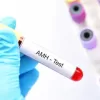Frequently Asked Questions
Find answers to some of the most commonly asked questions
INTRODUCTION
Deciding when to embark on fertility treatment can be an overwhelming prospect, so with that in mind we have developed our FAQ page to answer as many questions as possible.
If at any time you would like further information, you can contact the clinic or attend one of our open evenings to find out more.
What is infertility?
- If you have been trying to get pregnant unsuccessfully for at least 12 months, one or both partners may have an undiagnosed fertility problem
- One in seven couples in the UK have difficulty getting pregnant or carrying a baby full term. That’s almost 3.5 million people
- It’s not a women only problem with more than 40% of fertility cases in recent years being related specifically to the man
- Being infertile does not mean that you will never have children, just that you need assistance in finding the cause of the problem and some specialist help with treatment to resolve it
- Even if you already have a child, you can still suffer with infertility when trying to pregnant a second or third time, this is known as Secondary Infertility
- Infertility is also referred to as subfertility
What causes infertility?
Infertility can be caused by a number of factors for both women and men. For women, the most common causes are lack of regular ovulation, blocked or damaged fallopian tubes or known medical conditions such as endometriosis or PCOS. In men, the most common factor of subfertility is poor-quality semen. Read more about Lifestyle factors and female and male fertility causes.
How can we improve our chances of getting pregnant?
Lifestyle choices are a major factor here. You should reduce your alcohol intake, stop smoking, eat healthily, take plenty of exercise, try to reduce stress factors and aim for a good night’s sleep. Women will benefit from taking 400mcg of Folic Acid supplements to help prepare their bodies whilst men will benefit from ensuring their scrotum is not restricted with tight underwear nor overheated.
Can I do anything to improve the quality of my sperm?
Sperm has a three month life cycle so any changes you can make to your lifestyle, such as stopping smoking and reducing your alcohol intake can help to improve the overall quality of your sperm over a three month period. You may also wish to take supplements containing Vitamin C, Vitamin E, Zinc and Selenium or improve your diet with foods rich in these vitamins and minerals.
Is there a waiting list for treatment?
No. We are a specialist private clinic, established to serve all individuals and couples with infertility or fertility preservation queries.
Are there any restrictions on acceptance for treatment?
We have very few restrictions on who we will accept for treatment but we do adhere to the HFEA guidelines in this regard.
How much does a ‘typical’ IVF Cycle Cost?
At IVF London, your IVF cycle package cost would include all monitoring scans, nurse consultation, egg collection, standard laboratory procedures and an embryo transfer’. Drugs and blood tests are charged separately and vary from patient to patient.
Can I get a referral to IVF London?
You can be referred by your GP or you can self-refer by contacting our clinic to book an appointment to see our consultant for an initial consultation.
Does my partner have to come to the clinic?
We will need to see both you and your partner at your initial consultation in order to take your medical history and schedule any tests required for each of you. Your partner is always welcome to attend the clinic with you at any time after this including your egg collection appointment, but they will be asked to wait outside for you during any procedures.
What forms do I need to fill in?
You will be required to fill all the statutory registration and consent forms provided by our regulating body the HFEA. Apart from these you will also need to sign a consent for the procedure or scan that will be undertaken on the day. You will be given the forms ahead of time so that you can fill them at leisure at home and submit them to the clinic ahead of your appointment/ procedure.
How long does a treatment cycle last?
If everything goes as expected and planned, your cycle can take between four and six weeks, from the start of your treatment to finding out whether the treatment has been successful. Read ‘Overview of an IVF Journey’ for an outline of your schedule here at IVF London.
How many cycles will I need?
Whilst some women have an immediate success with treatment, others may need an additional cycle, depending on the underlying cause of their infertility. No two cases are the same. Your consultant can advise you whether they feel further treatment is appropriate.
Will I have to inject myself?
Most injections can be self-administered in the comfort of your own home. They are done with a small needle placed under the skin (subcutaneously). Our fertility nurse will show you how to administer the injection so that you are confident with self-injecting away from the clinic.
Are there any side-effects expected during treatment?
Ovarian hyperstimulation syndrome, or OHSS can occur when the ovaries are over stimulated with fertility medication used in IVF or other fertility treatments. Typically, OHSS symptoms are minor, with mild to moderate pain, loss of appetite, nausea, diarrhoea and feeling bloated. If after receiving a hormone injection you develop any of the symptoms described above, you should notify the clinic for advice and monitoring.
What happens during egg retrieval?
During egg retrieval, you will be sedated and given pain relief. Your eggs are collected transvaginally using an ultrasound guide and long needle with a suction device at the end. This procedure usually takes approximately 30 minutes. You can read more about the process in our IVF journey overview.
Where and how do I produce a sperm sample?
Sperm samples are delivered by masturbation and can be produced at the clinic where we can ensure your sample won’t be affected by any external factors prior to testing. Men who have had difficulty in producing a sperm sample at the clinic would be advised to produce a semen sample at home or a nearby hotel and transport it to us within an hour of production to maintain viability.
How do I find out whether my eggs have fertilized?
The day after your egg collection, our embryologist will ring you to notify you how many of your eggs have successfully fertilized. However, we will not know until day 3 (your transfer day), how many will remain suitable for your transfer stage.
Can the day of my embryo transfer be predicted?
We need to ensure that your fertilised eggs have developed sufficiently. By day 3, the embryos should have divided into the eight cell stage. Our embryologist will be assessing your embryos daily and will decide on which day would be ideal to transfer the embryos. Since we cannot predict how the embryos would develop the decision of when to transfer will be made on the morning of day 3 after your egg collection you will be given daily updates on the progress of your embryos by our embryologist including on when the embryo transfer will most likely be.
Do I need a full bladder for the embryo transfer?
Yes. When we undertake this procedure we use an ultrasound to view your uterus to check embryo placement. A full bladder provides a clearer scan and also helps the ease of embryo delivery in the uterus.
How long does embryo transfer take?
The appointment is for 30 minutes. The embryo transfer is carried out in our procedure room and involves a simple procedure (similar to a smear test) to place the embryo back into your uterus. Generally, there is no discomfort or pain encountered during this procedure.
What care should I take immediately after my embryo transfer?
It is best if you return to your normal routine immediately after a transfer, but we would recommend avoiding any heavy lifting or strenuous exercise for 2 weeks. We advise that you do not go to work on the day of your embryo transfer.
What is a Blastocyst Embryo?
A blastocyst embryo is an embryo that is 5-6 days old. Normal embryo transfer can be conducted at day 3 after egg collection, whereas a Blastocyst is cultured in our laboratory for a further 2-3 days to help enhance the selection of embryo(s) to provide the best potential for successful uterine development. Our aim would always be to transfer blastocysts should you fit our criteria.
What are my chances of success with treatment?
Several factors will affect your chances of success after treatment. Your Consultant will discuss this with you following review of your medical history and the results of any tests they have requested.
How soon after treatment can I take a pregnancy test?
We would recommend that you wait at least 14 days after embryo transfer before taking a pregnancy test. This is known to many who have undertaken treatment as ‘the two week wait’.
When are pregnancy scans carried out?
We normally carry out your first pregnancy scan two weeks after a positive pregnancy test and then another four weeks after that. We will then discharge you to your GP for your antenatal care.
What happens if my treatment isn’t successful?
Unfortunately, there are no guarantees with any treatment. If your cycle has not been successful, your Consultant will discuss the possible causes with you and discuss whether you wish to continue. You will also be offered an opportunity to talk to our counsellors.
My treatment was unsuccessful, how soon can I try again?
We advise that you allow your body to rest for 2 months before commencing another cycle.
Can I freeze any spare embryos?
To ensure the greatest chance of success with your treatment, we will only choose the best embryo(s) for your transfer. Any remaining good quality embryos can be frozen this can be undertaken here at the clinic in accordance with your wishes. Our embryologist will discuss the options with you on the day of your embryo transfer.
How long can I store my eggs, sperm or embryos for use in future treatment?
Typically, you can only store your eggs, sperm or embryos for ten years. In cases where you might be undergoing medical treatment or have premature infertility, you can discuss longer storage option with your consultant.
Who do I contact if I need urgent advice?
If you have any concerns, you can contact IVF London at any time. You may be transferred to our out-of-hours cover to speak to a consultant or nurse.





